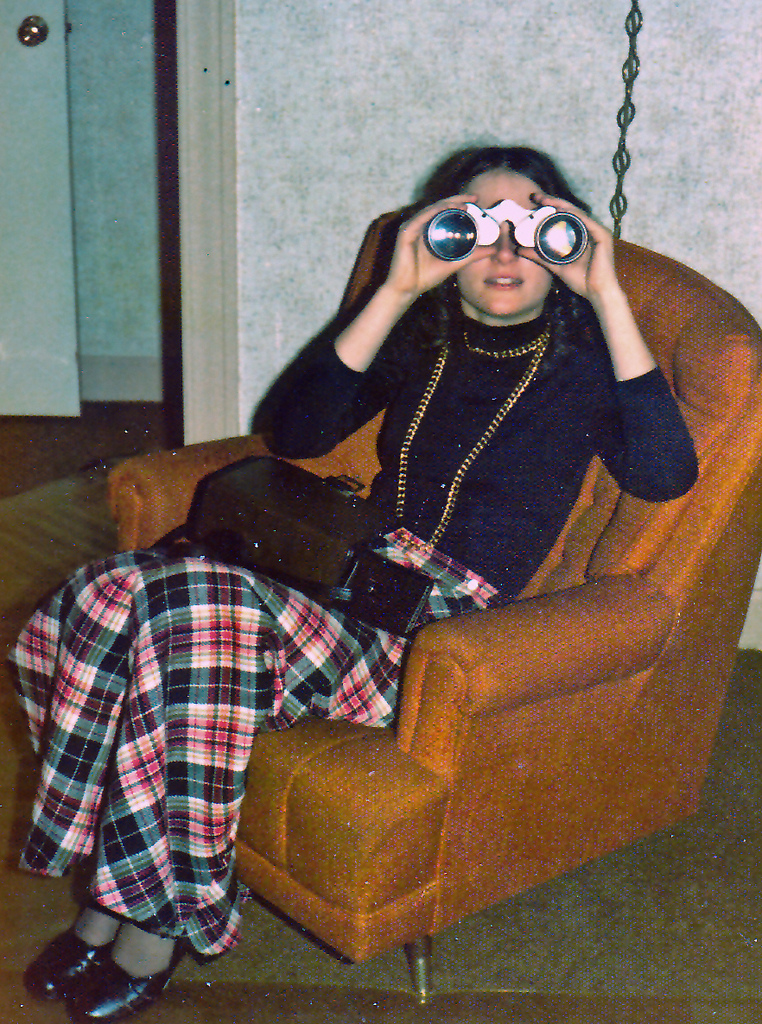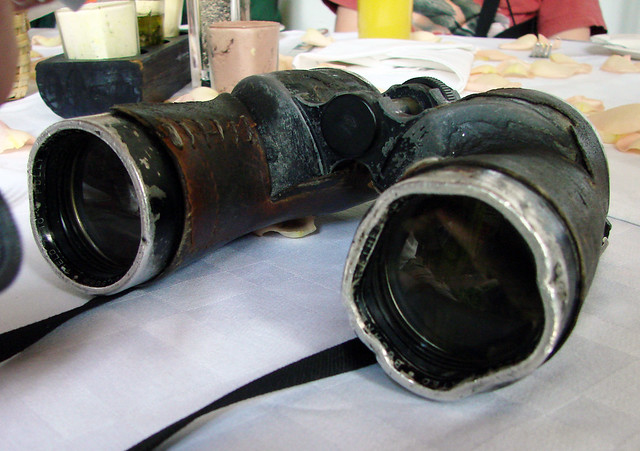66. Donate your old binoculars and field guides to a local school, nature center, or organization such as Birders' Exchange.

When I started birding in 1975, there weren’t many kinds of binoculars to choose from. Now there are hundreds of models of standard binoculars, as well as some with image stabilizing, built-in digital cameras, and night vision. There are also many more spotting scope models. Birders now push their optics to the limits, even taking photographs through a technique called digiscoping. More space in birding magazines is devoted to comparisons of sophisticated optical equipment. Many birders still use the same pair of binoculars they’ve had for twenty years or more, but a growing number buy new optics every few years, allowing their old binoculars to languish on a shelf. Meanwhile, birding and conservation organizations in Old World and New World tropical countries are in desperate need of optical equipment. That’s why the American Birding Association started its Birders’ Exchange program. According to the American Birding Association:
Birders’ Exchange takes new and used birding equipment and educational materials and matches it with local scientists, conservationists, and educators working to conserve Neotropical migratory birds and their habitats in Latin America and the Caribbean. Such items are also critical for community outreach and education.
Equipment donated through Birders’ Exchange is necessary to support a range of conservation activities to protect Neotropical migrant birds—from educating school children to conducting scientific research. The combination of these and other activities is promoting long-term results toward the conservation of birds and their habitats.
Please consider donating some of the following items:
- Binoculars—we especially are in need of rubber armored and/or waterproof binoculars.
- Digital cameras
- GPS units
- Spotting scopes
- Tripods
- Field guides to Neotropical birds
- Field guides to North American birds
- Ornithology texts
- Laptop computers
- Backpacks
The equipment must be in good working order. For example, the binoculars must be in proper alignment, the focus wheel in operation, and the glass without flaws.
Occasionally we ask for other materials as the special requirements of projects demand. Contact us ahead of time if you have other gear to contribute to see if we have a proper match. Birders’ Exchange also needs contributions to continue its work. All contributions are tax-deductible to the extent permissible by law. Birders’ Exchange will acknowledge all contributions by letter.
Your old optics can also help birds and people closer to home when you donate them to a local school or nature center. Before donating, make sure that the equipment is wanted and will actually be used. Another option is to “adopt” a budding birder and pass on your old optics to him or her.

From 101 Ways to Help Birds, published by Stackpole in 2006. Please consider buying the book to show that there is a market for bird conservation books. (Photos, links, and updated information at the end of some entries are not from the book.)